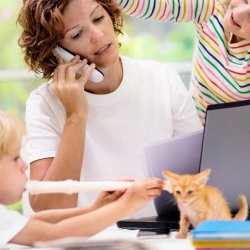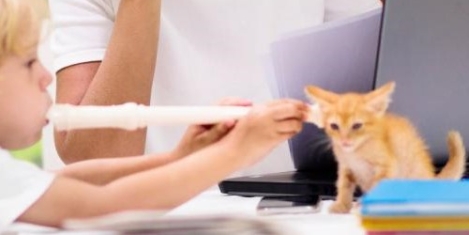To provide the best experiences, we use technologies like cookies to store and/or access device information. Consenting to these technologies will allow us to process data such as browsing behaviour or unique IDs on this site. Not consenting or withdrawing consent, may adversely affect certain features and functions.
The technical storage or access is strictly necessary for the legitimate purpose of enabling the use of a specific service explicitly requested by the subscriber or user, or for the sole purpose of carrying out the transmission of a communication over an electronic communications network.
The technical storage or access is necessary for the legitimate purpose of storing preferences that are not requested by the subscriber or user.
The technical storage or access that is used exclusively for statistical purposes.
The technical storage or access that is used exclusively for anonymous statistical purposes. Without a subpoena, voluntary compliance on the part of your Internet Service Provider, or additional records from a third party, information stored or retrieved for this purpose alone cannot usually be used to identify you.
The technical storage or access is required to create user profiles to send advertising, or to track the user on a website or across several websites for similar marketing purposes.
 New research by MHR International, shows one-in-three working parents (33 percent) have lied to their boss about how they are coping with the balance between home schooling and work during the current lockdown. (more…)
New research by MHR International, shows one-in-three working parents (33 percent) have lied to their boss about how they are coping with the balance between home schooling and work during the current lockdown. (more…)








 The idea of a Global Village comes loaded with a number of idyllic connotations. Most of them derive from the use of the word village itself, which triggers the idea of a community in our minds. Yet even the man who coined and popularised the term in the 1950s and 60s to describe a world contracted by new media understood that there are always complications whenever technology rubs up against human beings.
The idea of a Global Village comes loaded with a number of idyllic connotations. Most of them derive from the use of the word village itself, which triggers the idea of a community in our minds. Yet even the man who coined and popularised the term in the 1950s and 60s to describe a world contracted by new media understood that there are always complications whenever technology rubs up against human beings. 




 A review of research in organisational and workplace psychology conducted by an international team of academics claims that working from home has been more disruptive for women than men. The review paper, entitled
A review of research in organisational and workplace psychology conducted by an international team of academics claims that working from home has been more disruptive for women than men. The review paper, entitled 
 Employee monitoring is an emotive topic. Businesses may wish to monitor their staff for a variety of reasons. For instance, they may wish to prevent the unauthorised disclosure of confidential or sensitive information, or detect attempts to steal valuable intellectual property. In the current conditions, dominated by the coronavirus pandemic, many businesses have opted to use automated means to monitor staff productivity. However, from an employee’s perspective, the use of monitoring software may be intrusive if not distressing. Further, if it has been implemented without regard to data protection law, it is potentially illegal.
Employee monitoring is an emotive topic. Businesses may wish to monitor their staff for a variety of reasons. For instance, they may wish to prevent the unauthorised disclosure of confidential or sensitive information, or detect attempts to steal valuable intellectual property. In the current conditions, dominated by the coronavirus pandemic, many businesses have opted to use automated means to monitor staff productivity. However, from an employee’s perspective, the use of monitoring software may be intrusive if not distressing. Further, if it has been implemented without regard to data protection law, it is potentially illegal. 
 Productivity, morale and the ability to serve customers are being hamstrung by technology issues at European mid-size businesses, accordingly to research commissioned by
Productivity, morale and the ability to serve customers are being hamstrung by technology issues at European mid-size businesses, accordingly to research commissioned by 
 Heightened anxiety during the Covid-19 pandemic has led to employees working longer hours and taking fewer sick days, all the while becoming less fulfilled by work and life, according to the latest analysis from
Heightened anxiety during the Covid-19 pandemic has led to employees working longer hours and taking fewer sick days, all the while becoming less fulfilled by work and life, according to the latest analysis from 


 A newly commissioned survey of 1,000 people conducted by Censuswide on behalf of
A newly commissioned survey of 1,000 people conducted by Censuswide on behalf of








January 14, 2021
2021 presents the tech sector with once in a generation opportunities
by Uta Dresch • Comment, Flexible working, Technology